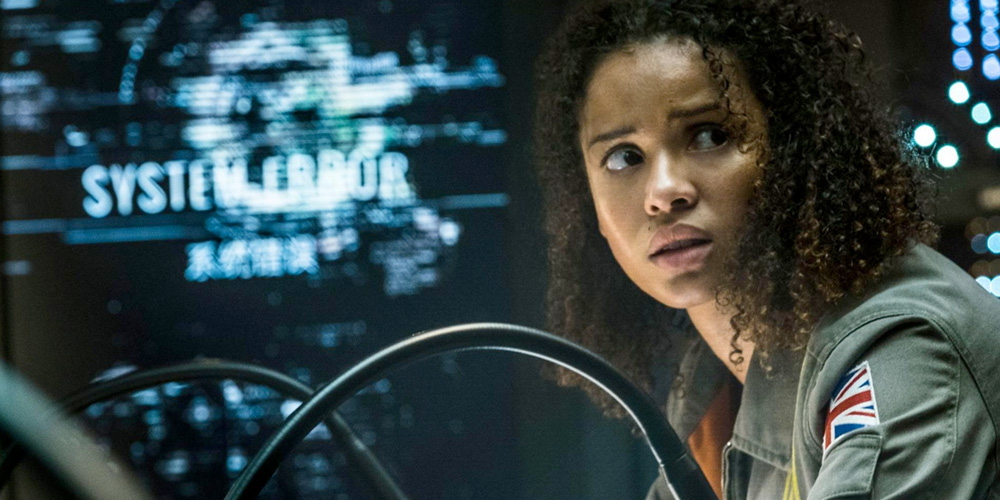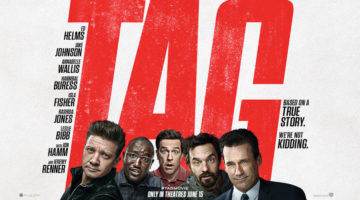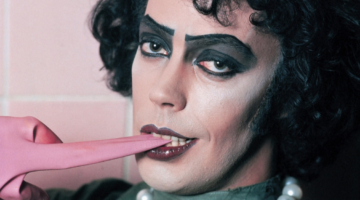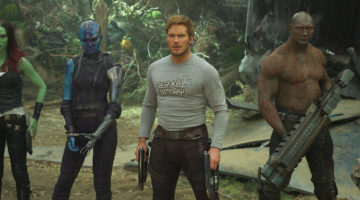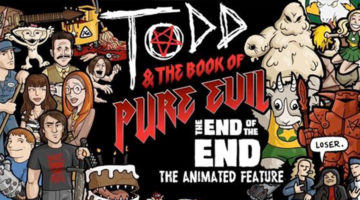Review: The Cloverfield Paradox
Surprise! The Cloverfield: Paradox is horrible
It’s the year 2028 and the world is dealing with an energy crisis. A group of extraordinarily bland scientists head for a space station to prevent global warfare by running an advanced particle accelerator meant to find a renewable energy source. After two years of failed attempts, and ever-increasing conflict back on earth, the accelerator experiment appears to work, but alas it just makes Earth disappear!
From there, chaos ensues as the crew tries to figure out what’s going on, how to get back where they came from, and how to save that pesky, missing planet Earth. The random events that follow are too many to detail but it is important to note that a wall inexplicably absorbs an arm, cuts it off bloodlessly, and transports the arm somewhere else in the space station. Once the arm reappears, it – for real – is contained in a glass box, asks for a pen and writes a message instructing the crew to cut open a recently deceased crew member to find a missing piece of machinery. David Oyelowo, Daniel Brühl, Chris O’Dowd, Aksel Hennie, Zhang Ziyi and John Ortiz are all in this movie.
The good parts are actually just one part: a single cool death scene with a strong visual component that maybe doubles as a Lost reference (R.I.P. Charlie). A recap of the rest: the acting is bad, the chemistry is non-existent, the script is garbage (“If we can’t keep our shit together up here, how can we ever expect them to do it down there?”), the cast is wasted, the tone is so erratic it’s kind of incredible, and the convoluted story is not worth the effort required to follow it to the bitter end.
Cloverfield and 10 Cloverfield Lane had their detractors, but were both interesting and thoughtful. In particular, 10 Cloverfield Lane worked because of a tight script, strong character development, and an exploration of human behavior that felt recognizable and packed emotional punch. With the relentlessly generic and self-serious Paradox, it’s unclear why anyone does anything or why the audience should care. Never mind the audience, the movie’s own space crew can’t feign sorrow when crew members start inevitably dying.
The most surprising part of the whole experience is how thoroughly bad and boring the product is, especially after a revolutionary release and the success (and quality) of previous entries in the Cloververse. From Netflix, this sort of dud is expected, but how, J.J. Abrams, could you do this to us? And, more importantly, how could you do this to David Oyelowo?
It’s now clear that the super-fun release stunt was meant to draw in audiences before reviews could extinguish any desire to see Paradox. It was a brilliant step forward in marketing entertainment that successfully duped moviegoers into watching an instantly hyped movie before they could warn each other not to bother. At least the months or years between now and when the fourth installment arrives (yes, it’s already being made), provide ample time to make alternate plans.

